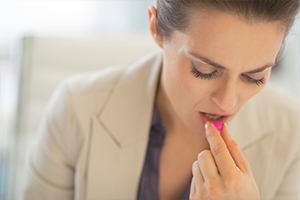
Category Archives: DHEA
Can DHEA Improve Egg Health in Women?
Egg health is one of the most important factors in a woman’s fertility. A woman with poor egg quality will have difficulty becoming pregnant and is more likely to miscarry. Traditionally, the only way to address poor egg quality was to harvest a large number of eggs in an attempt to find ones that were suitable for fertilization. However, advances in fertility medicine and the use of DHEA can enhance the quality of a woman’s eggs.
Can DHEA Actually Help You Get Pregnant?
As many as 10 percent of couples are affected by fertility issues, described as the inability to become pregnant on their own after trying for one year. These issues are equally likely to be caused by the male partner, female partner or combination of the two. For infertility issues that are related to the female, use of DHEA has been shown to improve pregnancy rates. 
How DHEA is Giving Women Over 40 Hope in Their Fertility Treatments
For women over 40 who want to start a family, fertility treatments are often the only option. Biologically, a woman’s fertility begins to rapidly decline after age 35. While men produce sperm continually throughout adulthood, women are born with all of the eggs they will ever have. As a woman ages, the quality of those eggs begins to decline along with changes in her hormone levels. This decline results in difficulty becoming pregnant and an increase in miscarriages due to low embryo quality. The introduction of DHEA as a supplement has changed the outlook for women who are looking to get pregnant over 40.
Read more: How DHEA is Giving Women Over 40 Hope in Their Fertility Treatments
The Importance of DHEA When Calculating Your Chances of Pregnancy
It is common for women with fertility issues to have questions about their chances for getting pregnant. The likelihood varies from person to person and is directly related to each woman’s diagnosis. Traditionally, women with a diminished ovarian reserve or who are diagnosed as poor responders are among those with the lowest pregnancy success rates. This is partially because of a decreased egg quality which both inhibits pregnancy and increases the likelihood of miscarriage. However, the hormone DHEA is changing these odds.
 Read more: The Importance of DHEA When Calculating Your Chances of Pregnancy
Read more: The Importance of DHEA When Calculating Your Chances of Pregnancy
Can DHEA Really Enhance Your Fertility Treatments?
A common cause of infertility in women is having a diminished ovarian reserve. A diminished ovarian reserve means that a woman is less likely to produce a high quality egg that is suited for pregnancy. These women have a more difficult time becoming pregnant and are more likely to suffer a miscarriage due to the low quality of their eggs. Using DHEA as a part of fertility care has been clinically proven to increase the chance of pregnancy and live birth.
Read more: Can DHEA Really Enhance Your Fertility Treatments?
Dr. Zhang’s Pick of the Month
Should you consider DHEA?
A few words about an exciting new protocol.
Hi, everyone. One of the hottest topics in IVF treatment right now is the use of DHEA (dehydroepiandrosterone) for patients who respond poorly to controlled ovarian stimulation. Up to 1 in 4 IVF cycles are characterized by poor ovarian response. “Poor responders,” as they’re known, suffer from Diminished Ovarian Reserve resulting in fewer oocytes and decreased rates of pregnancy.


